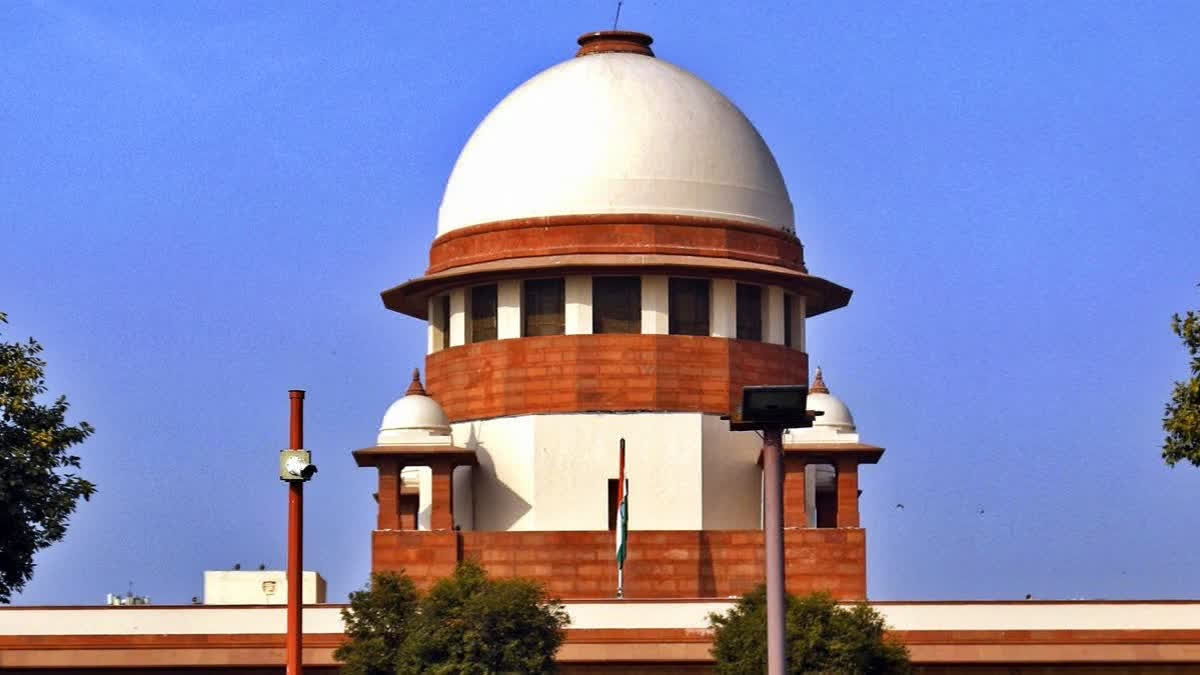New Delhi: The Supreme Court Thursday made it clear that judicial review must be confined to a constitutional violation, while it asked a counsel, representing one of the petitioners challenging the abrogation of Article 370, is he inviting the court to review the wisdom of the decision of the government on the abrogation of Article 370, which bestowed special status on the erstwhile state of Jammu and Kashmir.
The top court stressed it would not be correct to postulate that Article 370 achieved its life and that what is a temporary provision assumes the state of permanence in the Indian constitutional fabric. A five-judge constitution bench headed by Chief Justice of India DY Chandrachud and comprising Justices S K Kaul, Sanjiv Khanna, B R Gavai, and Surya Kant, is hearing a batch of pleas challenging the abrogation of Article 370.
Also read:New SC handbook says no to words like 'prostitute', 'chaste woman' 'housewife' among others in a bid to combat gender stereotypes
Chief Justice Chandrachud queried senior advocate Dushyant Dave, representing one of the petitioners, are you inviting the court to review the wisdom of the decision of the government on the abrogation of Article 370? Justice Chandrachud further queried Dave, you are saying that judicial review should reassess the basis of the government’s decision that it was not in the national interest to continue Article 370?
The Chief Justice told Dave: “But Judicial review must be confined to a constitutional violation” and added, “Constitutional violation is certainly open to judicial review ... .there is no doubt if there is constitutional violation this court has jurisdiction to review undoubtedly….”.
The bench queried Dave, is he focussing on the wisdom underlying the decision to abrogate? Dave said there is no question of wisdom and today, I am on fraud on the Constitution and the President exercised his powers without any material whatsoever and cited Centre’s counter affidavit in the matter. Dave said the Centre’s counter-affidavit is a bundle of contradictions.
The bench asked do we really need to labour on the counter? We have to interpret the constitutional provision as it stands, how is this relevant? Dave said there are no reasons available in the presidential exercise, nor are they given in the counter.
Dave said there is no doubt that Article 370 has worked very well and since 1947 there is no difficulty in this relationship – between Jammu & Kashmir and the Centre -- and Article 370 must continue to work.
The Chief Justice queried Dave, if Article 370 works itself out and achieves its purpose once the constituent assembly (CA) for Jammu & Kashmir has completed its task then where was the occasion to issue constitutional orders post 1957?
The Chief Justice told Dave, “Your whole argument is that Article 370 has worked itself out once the CA completed its task. But that would be belied at least by constitutional practice. Because even after 1957, there were orders issued progressively modifying the provision of the Constitution in relation to J&K, which means that Article 370 had continued to operate even thereafter. Therefore, it would not be correct to postulate that Article 370 achieved its life and what is a temporary provision assumes the state of permanence in the Indian constitutional fabric”.
The bench said there is no question of any constitutional order being issued progressively from 1954 onwards. The Chief Justice told Dave, if your argument is right then once the CA in 1957 takes its decision there is no power to change any provision of the Constitution in relation to Jammu & Kashmir?
The Chief Justice asked Dave, “Your submission is that once the Constituent Assembly made its decision, there was no question of invoking the proviso to clause (3), and Article 370 becomes a permanent feature. There is one inconsistency in accepting that submission. Because if it is right, the consequence once the CA completed its task in 1957 there could be an amendment to the Constitution at all under clause 2 of Article 370, which is belied not merely by constitutional practice but the acceptance by both J&K and the Government of India that amendments were made to the Constitution even after 1957 until the dispute amendment of 2019”.
The bench further queried Dave, you are saying post-Constituent Assembly dissolution there was no power to make any changes pertaining to J&K at all. There has to be a logical consistency in how we interpret Articles 370(1), (2), (3). Dave argued that the power to abrogate Article 370 does not lie with the President and that only the CA could have exercised such powers. The hearing in the matter will continue in the afternoon session.
Also read:'Status quo for 10 days,' Supreme Court on demolition drive by railways near Krishna Janmabhoomi in Mathura
